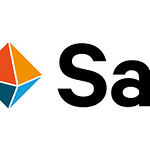Main Themes and Important Ideas/Facts:
1. The Role of Mathematics and Scientific Thinking in Finance:
Mathematical Foundation: Simons emphasizes that his deep training in mathematics was "somewhat helpful" in his transition to finance, primarily by giving him "the ability to tell who was good and who wasn’t" in terms of talent.
Hiring Scientists: A cornerstone of Renaissance Technologies' success was the deliberate strategy of hiring "excellent scientists who have decided they want to make money rather than people with previous experience in finance." He specifically looks for mathematicians, scientists, and statisticians. He believes prior financial industry experience is not necessary.
Quote: "We look for very good scientists who are interested in making some money, and we interview them."
Understanding New Ideas: Simons notes that his mathematical background allowed him to "understand that people would come up with new ideas."
Mathematics as Mind Training: While his specific mathematical work (like Chern-Simons invariants) doesn't directly translate to making money, Simons believes "the mathematics I did was essentially training my mind."
Quote: "Although Chern–Simons was wonderful, it does not help at all with making money."
Emphasis on Hard Work, Not Just Speed: Simons contrasts his approach with typical Wall Street interviews, where quick answers are valued. He emphasizes the importance of deep thinking and hard work.
Quote: "I’m not an extremely fast thinker myself; I just work hard. That was all I needed to do—work hard, not fast."
2. The Success of Renaissance Technologies and the Medallion Fund:
Key Ingredients for Success: Simons identifies three main ingredients for his quantitative investment firm’s success:
Building and continuously improving investment models through regular testing.
Hiring excellent scientists.
Fostering collaboration among the company’s workforce.
Continuous Model Improvement: Renaissance operates with "only one model, one system, which is improved continuously on the basis of new signals and market behavior in general." This includes incorporating new datasets as they become available.
Data Mining: The firm engages in extensive data mining, using "thousands of computers scouring data for information related to the movement of tradeable instruments." They acknowledge that not all findings are successful.
Quote: "Yes, we do a lot of data mining. We have thousands of computers scouring data for information related to the movement of tradeable instruments. Sometimes what we find works, and sometimes it does not."
Collaboration: Collaboration has been "extremely important" at Renaissance.
Profit Sharing: Early on, Renaissance fostered collaboration and motivation by "sharing profits with everyone."
Difficulty in Replication: The success of the Medallion Fund is hard to replicate because "it took thousands of person-years to build it" and relies on a specific team and their ongoing work.
Focus on Math, Not Behavioral Biases: Renaissance's model-building primarily relies on mathematical and statistical predictions, without explicitly considering popular trends like behavioral biases.
Quote: "We stick to the math."
Automatic Trading: The interview hints at the use of automatic trading systems.
Leadership Transition: Peter Brown has served as CEO of Renaissance since Simons' retirement in 2009.
3. Philanthropy and the Simons Foundation:
Significant Financial Support: Simons and his wife Marilyn have provided substantial financial support to various causes, particularly in mathematics and science. Their funding in mathematics is "probably comparable to the support of the National Science Foundation."
Math for America: Simons founded Math for America, a non-profit focused on improving math and science education in U.S. public schools by recognizing and rewarding outstanding teachers. This program is now set to go nationwide due to a provision in recent science bills.
Quote: "We’re identifying and rewarding outstanding teachers. So now this program will be nationwide."
Flatiron Institute: The Simons Foundation created the Flatiron Institute, which houses several groups of scientists focused on computational research in biology, astrophysics, quantum physics, mathematics, and neuroscience. These scientists receive salaries instead of relying on grants.
Quanta Magazine: The foundation supports Quanta Magazine, a free online publication dedicated to science journalism, which has received numerous accolades, including a Pulitzer Prize.
Focus on Fundamental Research: The foundation is "devoted primarily to science," with about 10 percent of its resources going towards education and outreach. Simons believes fundamental research is crucial for future advancements, even if the specific applications are unknown at the time of discovery (as illustrated by the story of I. I. Rabi and MRI).
Philanthropic Motivation: Simons explicitly states, "I’m not a do-gooder," differentiating his motivations from those who invest in ESG for purely ethical reasons. However, he supports causes like climate change through his son's Sea Change Foundation.
4. The Evolving Landscape of Quantitative Investing:
Increased Competition: Simons acknowledges that quantitative investing has become "harder" due to increased competition from a larger number of quantitative funds.
Quote: "The more quantitative funds there are, the more competition we’ll have."
Importance of Staying Ahead: To succeed in a competitive environment, firms need to "get better and better at it."
Impact of Massive Datasets: The availability of massive datasets has been incorporated into Renaissance's approach.
Influence of AI and Machine Learning: Machine learning is "very important" to the work at Renaissance and Flatiron.
Central Bank Intervention: Simons has no definitive opinion on whether increased central bank intervention in markets is good or bad, noting that central banks have always intervened. He cites Paul Volcker's actions as a notable example.
ESG Investing: Simons doesn't have strong opinions on ESG investing and suggests that restricting investments based on ESG factors might negatively impact portfolio returns. He notes that some investors support ESG for ethical reasons.
5. Advice for Aspiring Quantitative Investors:
Encouragement for Mathematicians: Simons would encourage mathematicians interested in making money to "apply to Renaissance."
Focus on Fundamental Skills: He values strong scientific and mathematical skills over prior financial experience.
6. The Role of Luck:
Simons believes "good luck" is an essential component of success, as reflected in the planned title of his memoirs: "Mathematics, Common Sense, and Good Luck."










Share this post